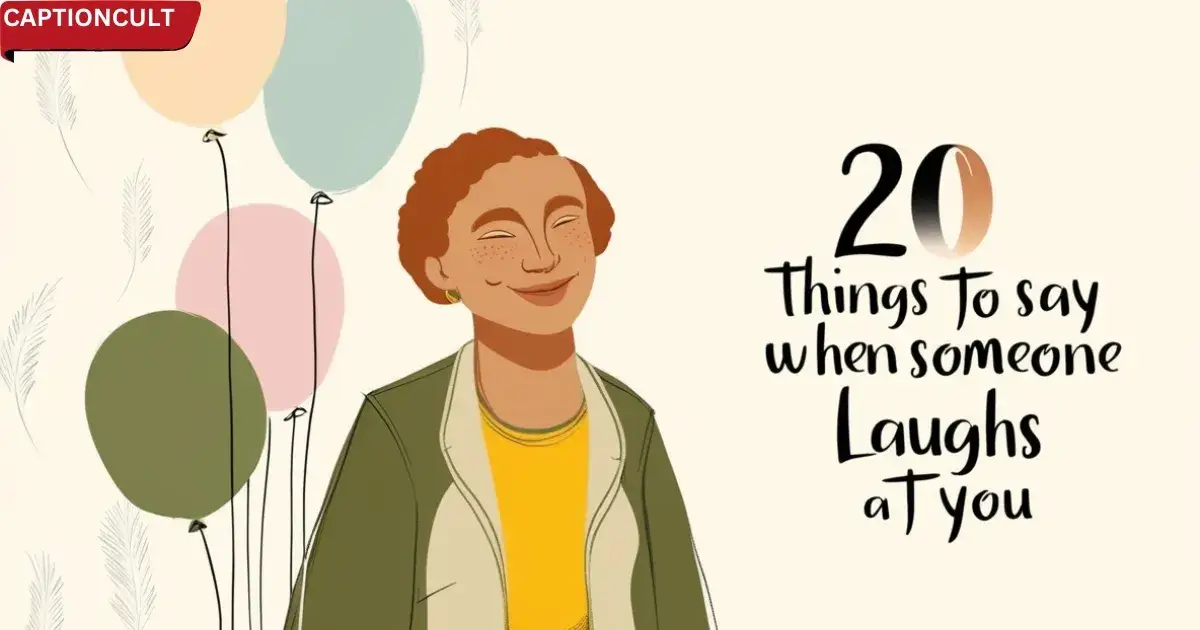Laughter can be a powerful social lubricant, a shared moment of joy. However, when that laughter is directed at you, the experience can shift from pleasant to profoundly uncomfortable. Understanding how to respond effectively when someone laughs at you is crucial for navigating social interactions gracefully and protecting your self-esteem. This article provides you with a comprehensive arsenal of response phrases—from witty comebacks to calm reassurances—to help you confidently handle such situations. Learning the best reply when someone laughs at you is about more than just finding the perfect words; it’s about gaining control and maintaining your self-assurance.
Understanding the Context: Why Laughter Hurts
Before diving into the response phrases, let’s explore why being laughed at can sting. Sometimes, laughter is unintentional—a nervous reaction, a misunderstanding, or simply a poorly timed joke. Other times, it can be deliberate mockery, a form of bullying or public embarrassment.
Regardless of the intent, the feeling of awkwardness and vulnerability is real. The key is to tailor your response to the specific situation and your relationship with the person laughing. Remember, the best reply when someone laughs at you is the one that makes you feel confident and in control.
20+ Responses to Laughter: A Toolkit for Every Situation
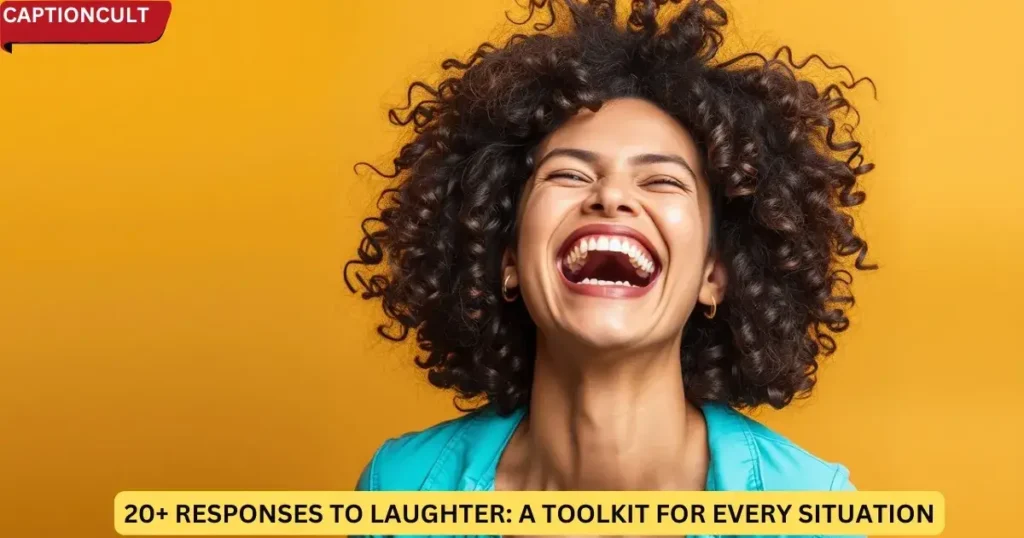
The following list offers a diverse range of response phrases designed to help you confidently navigate various scenarios. Remember that positive thinking and positive self-talk are vital components of successfully handling any situation where someone laughs at you. Your internal self-esteem and confidence will significantly impact how you react.
1. The Simple Acknowledgement: “I see why that’s funny.” (Works well for lighthearted situations, acknowledging the humor without dwelling on it.)
2. The Playful Deflection: “Oh, you’re so observant!” (A charming way to deflect the mockery by highlighting their perception rather than your action.)
3. The Confident Assertion: “Actually…” (followed by a factual correction or clarification). (This establishes self-assurance and gently corrects any misunderstandings.)
4. The Good-Humored Retort: “I’ll take that as a compliment.” (Turns the tables and shows you’re not easily fazed. Find the best reply when someone laughs at you by re-framing their humor.)
5. The Gentle Curiosity: “What’s so funny?” (This invites explanation; sometimes the laughter stems from a misunderstanding.)
6. The Direct but Calm Approach: “I’m not sure what’s amusing, but let’s move on.” (Sets a clear boundary and changes the subject.)
7. The Self-Deprecating Joke: “Yeah, I’m not exactly known for my grace.” (Humor can be a powerful deflection mechanism, especially when employed in a light and self-aware way. A great best reply when someone laughs at you relies on your ability to create humor from the situation.)
8. The Assertive Clarification: “I’m not sure I understand why you’re laughing.” This encourages them to explain, potentially revealing a misinterpretation.
9. The Boundary-Setting Statement: “I’d appreciate it if you wouldn’t laugh at me.” (Direct, but respectful; best used if the laughter is repetitive or offensive.)
10. The Calm Reassurance: “It’s okay. We all make mistakes.” (This normalizes the situation and diffuses the tension.)
Strategic Responses to Unexpected Laughter
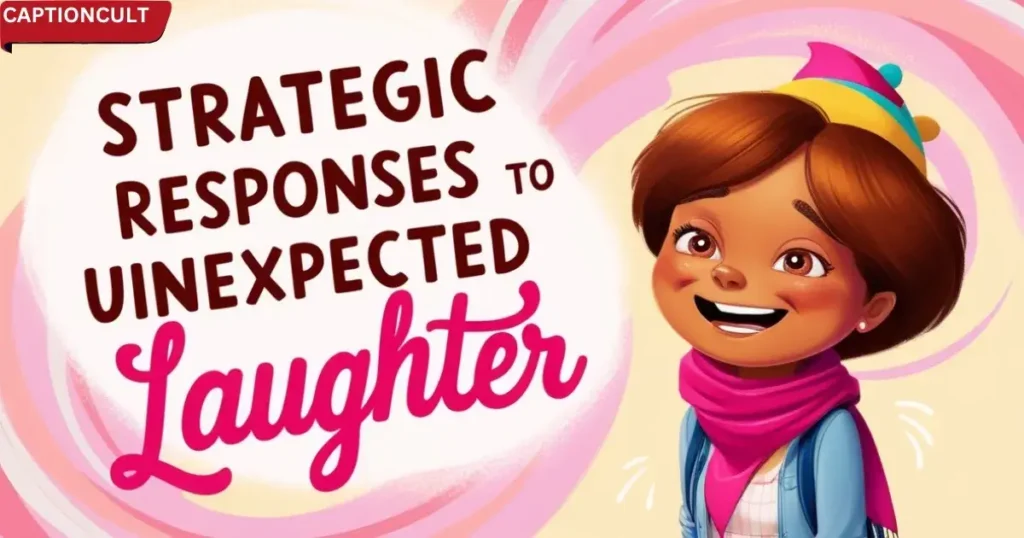
11. The Thought-Provoking Response: “It’s interesting how people find different things funny, isn’t it?” (Promotes respectful dialogue and shifts focus away from the initial discomfort.)
12. The Gentle Redirect: “Speaking of [new topic],…” (Smoothly shifts the conversation and avoids prolonged awkwardness.)
13. The Empathetic Response: “I can see why you might find that funny, but…” (acknowledges their perspective while opening up a chance to clarify.)
14. The Assertive Humour: “Oh, I thought I was being serious. My bad.” This response works well if the laughter is genuinely surprising.
15. The Direct and Honest Approach: “I didn’t find that funny, and I’d appreciate if you’d show some respect.” (This is a firm boundary, appropriate for repeated or inappropriate laughter.)
16. The Questioning Response: “Was there something specific that made you laugh?” This can help determine their motivation for laughing.
17. The Polite Correction: “Actually, that’s not quite how it happened…” (use this if a misunderstanding underlies their laughter).
18. The “Join-In” Approach: (If appropriate): Laugh along with them, briefly. This can disarm the situation, especially in lighthearted settings. This could be a best reply when someone laughs at you, particularly if they are your friend.
19. The Ignoring Approach: (Only if comfortable and appropriate): Simply ignore the laughter and continue with what you were doing. Sometimes, the best approach is non-reaction. This relies on your inner strength and self-assurance.
20. The High-Road Approach: “I hope you are having a good day” (Show maturity in your reaction by remaining positive and composed even in frustrating scenarios).
12 Advanced Psychological Techniques: Best Reply When Someone Laughs at You
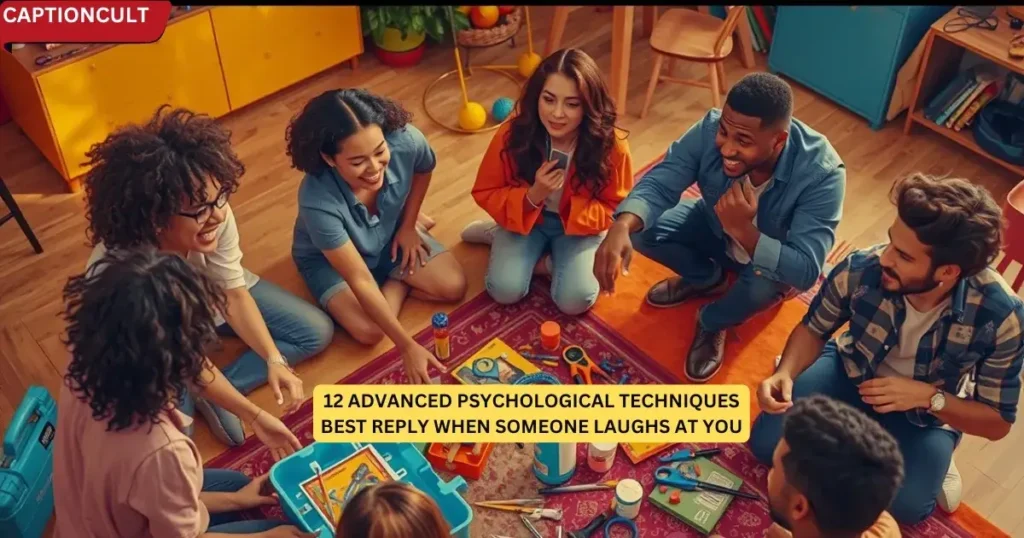
21. The “Teaching” Moment: (Use cautiously) “It’s not nice to laugh at others because it hurts their feelings.” (Use only if appropriate to correct someone laughing inappropriately).
22. The Matter-of-Fact Response: “Okay.” (Short, simple and can show that you are not fazed).
23. The Inquisitive Response: “Is something wrong?” (This response deflects back to the person laughing and turns the tables on them.)
24. The “You’re Right” Response: “You’re right, that was clumsy/silly/awkward.” (Acknowledging their perception, but in a non-confrontational way).
25. The Sarcastic Response: “Wow, I didn’t realize I was so entertaining.” (Use this cautiously, it could escalate the situation if delivered poorly).
26. The Reframing Response: “That reminds me of a time when…” (This works best in light-hearted settings and deftly changes the focus of the conversation. It’s a great option if you’re searching for the best reply when someone laughs at you in casual settings).
27. The Self-Affirming Response: “I’m comfortable with who I am.” This response works best when you’ve been laughed at for something related to your identity.
28. The Questioning Intent: “I’m curious, why are you laughing at me?” (Directly addresses the laughter but in a non-accusatory way.)
29. The Mirroring Approach: (Use only if you’re truly comfortable with the person): Mirror their laughter; laugh with them, then continue as though nothing happened.
30. The “That’s My Story, And I’m Sticking To It” Approach: If you’ve been mocked for stating a fact, confidently restate the fact, adding, “That’s what I said.”
31. The “You’ve Made Your Point” Approach: If the laughter is relentless, say, “Okay, I understand. Can we move on now?”
32. The “Change of Pace” Approach: If the situation is light-hearted, change your tone and say something unexpected, or shift to a different subject altogether.
Remember, the best reply when someone laughs at you depends heavily on context, your relationship with the person, and your own personality. The goal is not to win an argument but to regain control of the situation and protect your self-esteem.
Additional Tips for Handling Laughter
- Stay Calm: Take a deep breath and avoid getting defensive. Your confidence and calm demeanor will help defuse the situation.
- Avoid Escalation: Don’t engage in a battle of wits. A calm and measured response is usually more effective.
- Use Humor Strategically: Humor can be a powerful tool, but only if used appropriately. A poorly timed joke could backfire, so choose wisely.
- Assess the Situation: Before responding, take a moment to determine whether the laughter is malicious, unintentional, or a simple misunderstanding.
- Protect Your Boundaries: If the laughter is persistent or hurtful, don’t hesitate to speak up and set clear boundaries.
What to Do When Someone Laughs at You: Advanced Techniques for Handling Unexpected Laughter
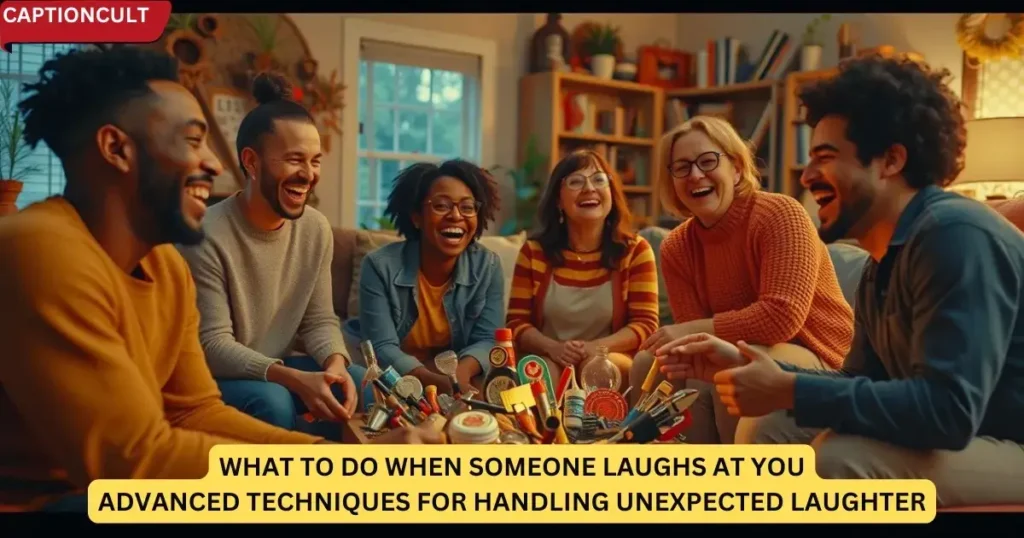
Maintaining Composure
- Stay calm
- Breathe deeply
- Avoid defensive postures
- Use positive self-talk
Reading the Room
Understanding social settings is crucial. The best reply when someone laughs at you varies between:
- Casual settings
- Professional environments
- Personal relationships
Psychological Insights
Why People Laugh
- Misunderstandings
- Discomfort
- Genuine amusement
- Social bonding
- Nervous reactions
Frequently Asked Questions: Navigating Laughter’s Landscape
What did you say to the people who laughed at you?
I chose a response that felt right for the situation, aiming for calm and clear communication. My goal was to regain control and de-escalate, not to win a verbal battle.
What to do if you get laughed at?
Take a deep breath, assess the situation, and respond calmly and confidently. Choose a response that aligns with your personality and the context, prioritising your well-being.
What happens when you have a good laugh?
A good laugh releases endorphins, improving mood and reducing stress. It connects you to others, fostering positive relationships and creating shared joy.
What is a good quote for laughter?
“Laughter is the best medicine.” This classic proverb captures the therapeutic power of laughter to heal and uplift.
How do you feel after a good laugh?
I feel lighter, happier, and more relaxed. My stress levels decrease, and I often feel a renewed sense of optimism and connection.
What is the physiological response after a good laugh?
Endorphins are released, reducing stress hormones and boosting your mood. Heart rate and blood pressure can temporarily increase, followed by relaxation.
What does “had a good laugh” imply?
It implies a shared experience of amusement and joy, suggesting a positive interaction and releasing stress or tension.
Conclusion: Your Laughter, Your Power
Best reply when someone laughs at you isn’t about the perfect comeback. It’s about maintaining your dignity, understanding the context, and choosing a response that reflects your character. Handling such situations improves your overall social interaction skills and creates a more positive and confident you. Remember: Laughter can be a weapon or a bridge. You decide how to use it. Stay confident, stay gracious, and stay you.

This is a passionate author whose work explores the power of language and storytelling. With a keen eye for detail and a commitment to excellence, Julian believes that every word has the potential to create meaning and beauty. “Where Words Find Perfection” is a reflection of his dedication to crafting narratives that resonate deeply with readers.

